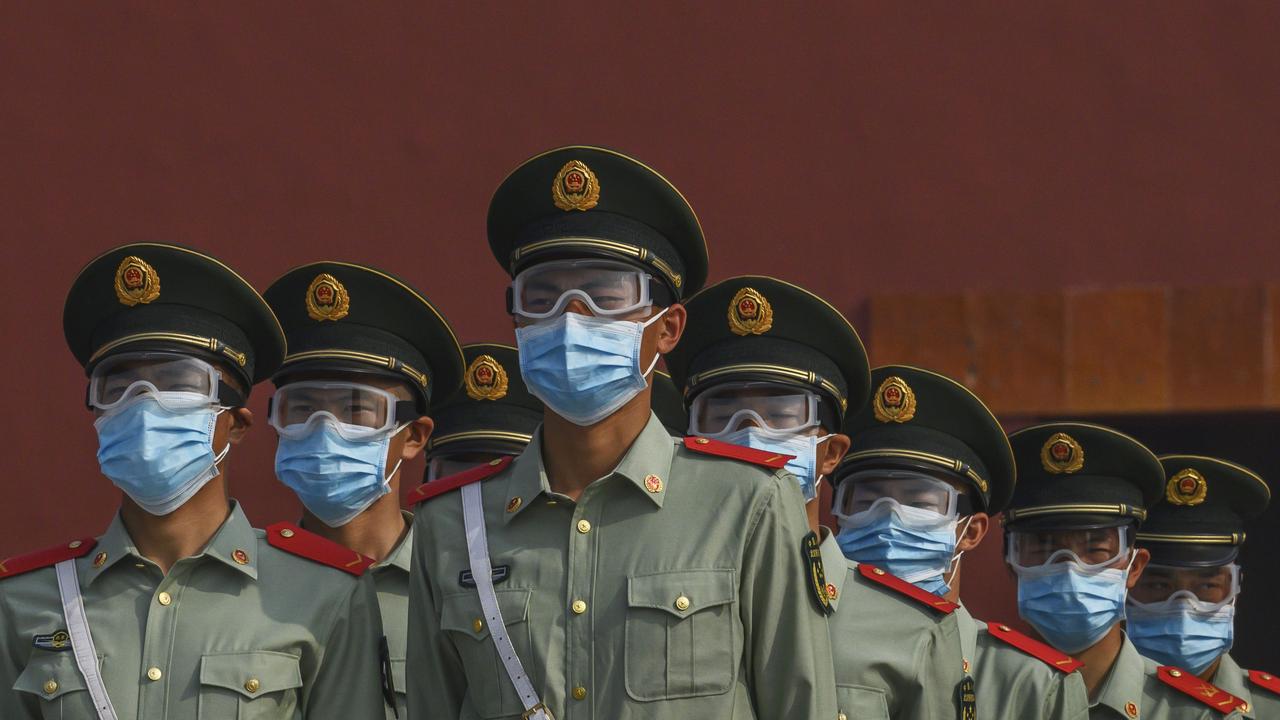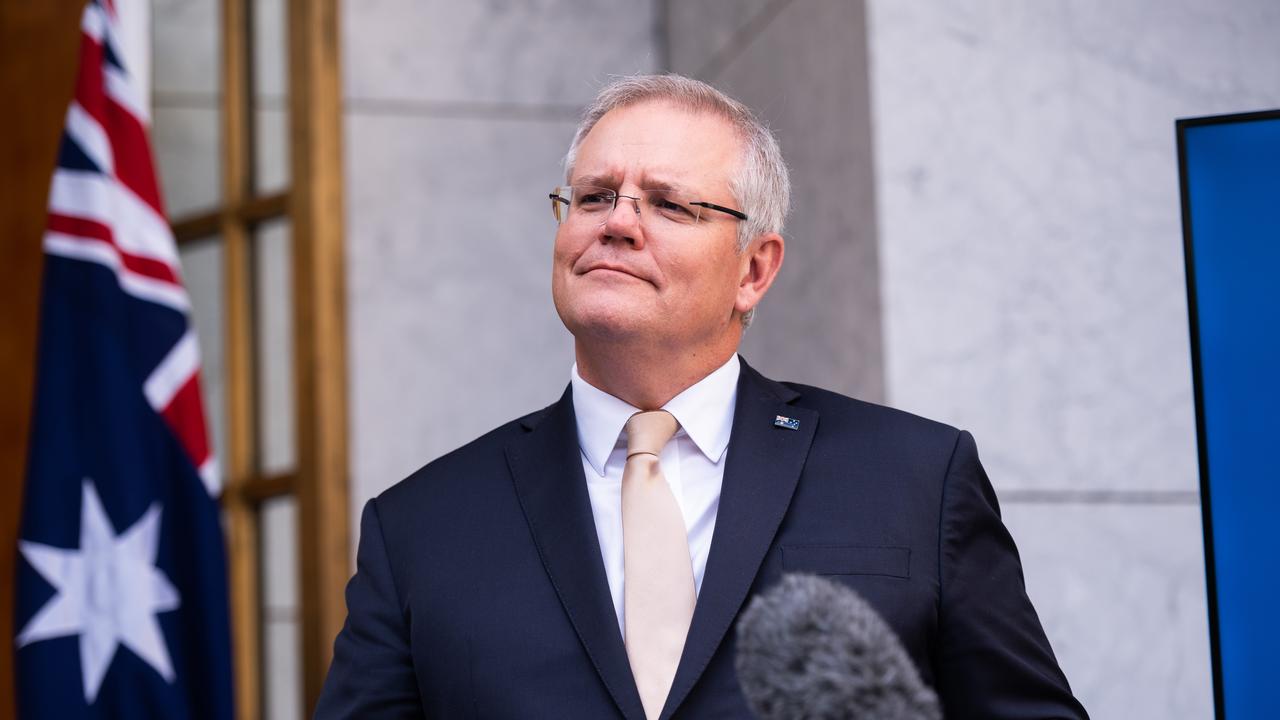Coronavirus: ‘Trade war’ fears as China suspends meat imports from four Australian abattoirs
China’s suspension of meat imports from Australian abattoirs amid rising tensions with Beijing signals the start of a “trade war”, one expert says.
China has suspended meat imports from at least four Australian abattoirs amid rising tensions between the Federal Government and Beijing, with one expert declaring the two countries are now “in a trade war”.
The Kilcoy plant, Beef City in Toowoomba, the Dinmore meatworks in Brisbane and the Northern Co-operative Meat Company at Casino in NSW have been suspended by Australia’s largest trading partner.
There are fears it was a retaliatory response to Prime Minister Scott Morrison’s call for an independent investigation into the COVID-19 outbreak.
But according to The Australian, those four plants have not been officially delisted, nor have they lost their licenses in China.
Beef City and Dinmore abattoirs are owned by JBS Australia. According to its website, Beef City processes up to 1134 cattle a day and Dinmore processes 3400 head a day.
Kilcoy is owned by China’s Hosen Capital. It underwent a $120 million upgrade in 2018.
The Northern Co-operative Meat Company is Australia’s largest meat processing co-operative.
"This is not about technical issues and arguments over trade policy," Asian trade expert Dr Jeffrey Wilson told The Australian.
"This is about diplomatic signalling and making a point. Australia now finds itself in a trade war."
But Trade Minister Simon Birmingham insists Australia is “not in any sort of war”.
RELATED: Follow our full coronavirus coverage

Earlier, Mr Birmingham said it is a “very important market for Australia”.
“But I would emphasise, there are many other meat processing facilities that will continue under their approved permits to send product to China as they do, indeed, around the rest of the world,” he said in a press conference today. “But we will work as hard as we can with this industry, just as we are with the barley industry, to get the right outcome for them.”
The Chinese government has threatened to slap Australian barley producers with tariffs of up to 80 per cent.
China’s Ministry of Commerce gave the nation’s barley producers 10 days to respond to an anti-dumping investigation that’s been conducted into Australian grain imports since 2010.
China has alleged that Australian farmers produced barley at a price lower than its “normal” level between 2014 and 2016, and is now considering two separate tariffs – a dumping margin of 73.6 per cent and a subsidy margin of 6.9 per cent on Australian barley exported to China.
Trade Minister Simon Birmingham said the move is deeply concerning and has “no justification”.
He said the Government is working with the Australian grains industry to mount the strongest possible case against China’s 18-month anti-dumping investigation.
“Every country has a right to apply tariffs in relation to matters of dumping,” Senator Birmingham told reporters in Canberra on Sunday.
“But we are quite clear and firm in our view that there is no justification to find that Australia’s farmers and barley producers are subsidised or are dumping their product in such ways.”
Former Nationals leader Barnaby Joyce says China’s tariff threat is retribution for Australia supporting a review of COVID-19’s origins.
“This is a case of payback,” he told Seven Network’s Sunrise on Monday, adding that the coronavirus investigation is justified.
Federal Labor said the Government must show leadership on managing this important relationship at this difficult time.
“We are getting a taste now of what it is like when we mismanage our relationship with our largest trading partner. This issue of barley goes back 18 months; it predates COVID-19,” the opposition’s agriculture spokesman Joel Fitzgibbon told Sunrise.
Mr Fitzgibbon said Australia had to be assertive while maintaining good relations with China.
“This is what happens when you put populist policies in place, making big statements, beating your chest without thinking about potential economic consequences for Australia, and also our farmers,” he said.
The threat comes at a time of friction between the countries, with Australia pursuing an independent review of the origins of COVID-19, an approach that has been rejected by China.

The Morrison Government has been calling for an inquiry into the origin of COVID-19 for some weeks to better understand how the virus started in Wuhan, China to be able to counter such pandemics in the future.
As such, Health Minister Greg Hunt said the Government backs a European Union motion for an independent investigation.
“We support the EU motion which includes an independent investigation, regulatory work on wet markets and also the potential for independent inspection powers,” Mr Hunt told Sky News.
But such an examination sparked a harsh response from Australia’s number one trading partner, further undermining a sometimes fragile partnership between the two countries.
Earlier in the month, Beijing lashed out at Prime Minister Scott Morrison, saying he deserved “a slap in the face” for trying to blame the COVID-19 pandemic on the communist state, and warned any push for an independent inquiry into the virus’ origins would spark a travel and trade boycott.
The state-controlled People’s Daily accused the Prime Minister of trying to use the calls for a probe to deflect criticism over his handling of the bushfires and the coronavirus crisis.
“The deeply troubled Morrison Government is anxious to find an outlet for the domestic public’s anger,” the report stated.
“They are using an old trick to try and blame China.”
The Global Times also lashed out in a piece headlined, “Morrison’s adventurism could damage China-Australia relations beyond repair”.
“The Morrison administration is spearheading this malicious campaign to frame and incriminate China with groundless conjecture and outlandish fabrications,” an editorial states.
“Based on unsubstantiated anecdotes and hearsay, Australia has been spreading preposterous lies accusing China of opening wet markets trading in wildlife across the country. Sensational tales, which are far from reality, are being told by media shock jocks and some politicians, who allege that bats are on menus in restaurants in China. This nonsense is stigmatising the Chinese community and the Chinese way of life.
“This is an all-out crusade against China and Chinese culture, led by Australia.”
Global Times editor Hu Xijin also reportedly shared a post on Chinese social media platform Weibo comparing Australia to chewing gum.
“After the epidemic, we need to have more risk awareness when doing business with Australia and also when we send our children to study there,” he wrote.
“Australia is always there, making trouble. It is a bit like chewing gum stuck on the sole of China’s shoes. Sometimes you have to find a stone to rub it off.”



